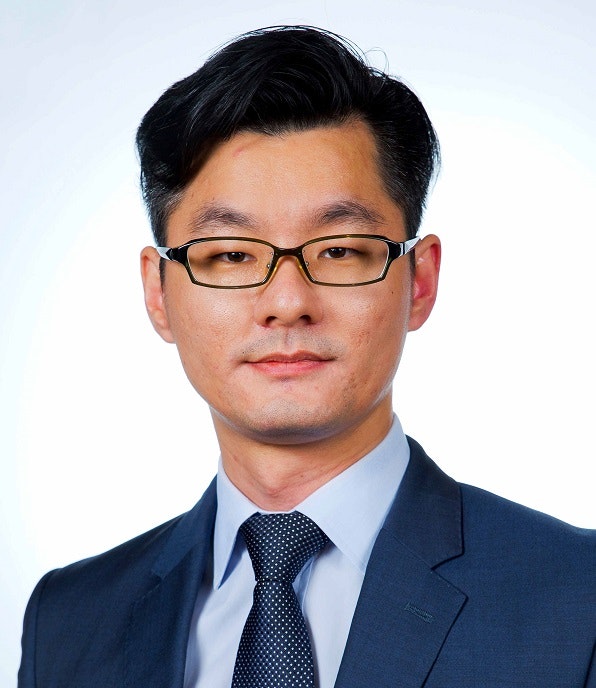Speaker interview with Teng Lei, the Principal Data Scientist at Thoughtworks

"Artificial Intelligence transcends mere utility; it serves as a catalyst for human advancement. To harness its potential, we must prioritize responsible innovation, empathy, and inclusivity. In doing so, we pave the way for a future where AI enhances human capabilities rather than replaces them."
In just under three weeks, we're gearing up for an exciting journey to Singapore for The AI Summit Singapore, happening from May 29th to 31st, 2024. Ahead of the summit, we had the incredible opportunity to sit down with Teng Lei, a renowned figure from Thoughtworks, who will be gracing the event as a speaker. His upcoming session titled "Deepfakes 101: Understanding the Technology Behind Synthetic Media," scheduled for May 30th, promises to be must-see. Join us as we get a sneak peek into Teng's thoughts and ideas on AI, offering a glimpse into what attendees can expect from his insightful session.
Singapore is the fastest-growing market for artificial intelligence (AI) talent in the Asia-Pacific, according to LinkedIn data - please elaborate on your background and relationship with tech, and how your journey lead you to your current role?
I've been fortunate to pioneer tech innovation, leveraging data for business growth since my research days in NTU. With 14 years in financial services at Citi and Bank of Singapore, I've navigated domains like business analysis, data engineering, and MLOps. Notably, as Head of AI/ML Engineering at Citi, I led enterprise data strategy, team management, and championed Generative AI integration. Committed to staying ahead, I've pursued continuous learning, including a master's from NUS and certifications in MLOps, AI, and data science. Now as a Principal Data Scientist at Thoughtworks, I'm eager to apply my expertise to drive client transformations.
Why do you believe generative AI and LLMs are crucial for enterprises in the realm of data-driven decision-making? Provide a concise explanation.
Generative AI and LLMs are powerful tools for making sense of the ever-growing data landscape, ultimately leading to faster, more strategic decision-making within enterprises. Firstly, generative AI allows for the creation of synthetic data, which can augment limited datasets, improve model generalization, and enhance the robustness of AI systems. Secondly, while businesses are drowning in data, LLMs can sift through massive amounts, including unstructured text like emails and social media. They can identify hidden patterns and relationships that traditional data analysis might miss, leading to more comprehensive insights. Thirdly, generative AI excels at tasks like text summarization, translation, and creative writing, greatly boosting productivity of organizations. Overall, leveraging generative AI and LLMs enhances the capabilities of enterprises to derive value from data, make informed decisions, and stay competitive in today's data-driven landscape.
What excites you about The AI Summit Singapore, and what can the audience expect from your session?
I'm thrilled to be a part of The AI Summit Singapore! Singapore is a hub for AI innovation, and being part of this summit allows me to connect with like-minded professionals, thought leaders, and innovators in the AI space. The summit provides a unique platform for knowledge sharing, networking, and collaboration, which is essential for driving AI adoption and growth in the region. During my session, the audience can expect to understand how Deepfakes work, explore the exciting possibilities deepfakes offer in fields like entertainment and education, and discuss ethical concerns and potential for misuse while explore responsible development and usage practices.
What recent breakthrough in the application of AI, either within your organization or in the broader AI landscape, excites you the most?
One recent breakthrough that particularly excites me is the advancement in multimodal AI systems. Multimodal AI systems, which can process and integrate multiple forms of input, such as text, images, speech, and gestures, are becoming increasingly sophisticated. These systems can learn to recognize patterns and relationships across different modalities, enabling more natural and human-like interactions. For instance, imagine being able to communicate with a virtual assistant using a combination of voice commands, gestures, and facial expressions. This could be revolutionary in how we interact with devices. The possibilities are endless, and I'm thrilled to see how multimodal AI will continue to evolve and transform the way we live and work.
At the AI Summit Singapore, we have four tracks “AI at Scale, Industry Applications, AI Frontiers, and Safeguarding AI” which are you most likely to be found listening to and why?
I'm particularly interested in understanding the latest breakthroughs in AI research and how they can be applied to real-world problems. The "AI Frontiers" track will offer a glimpse into the future of AI and provide a platform for experts to share their insights and experiences, and I'm eager to learn from them.
If you're interested in joining Teng Lei and other leading figures from the AI community in APAC, secure your seat now – limited availability!

